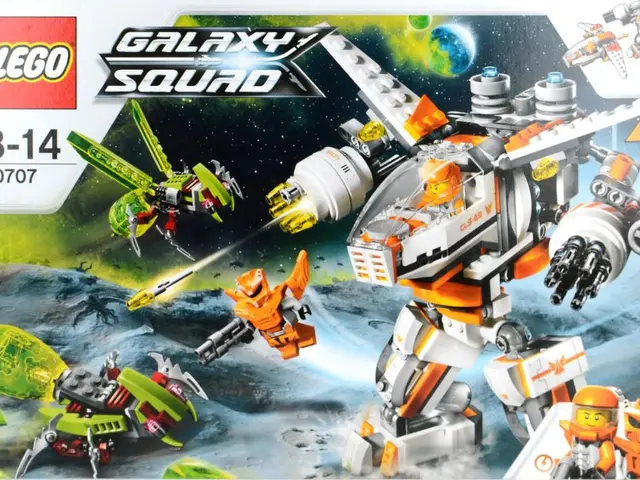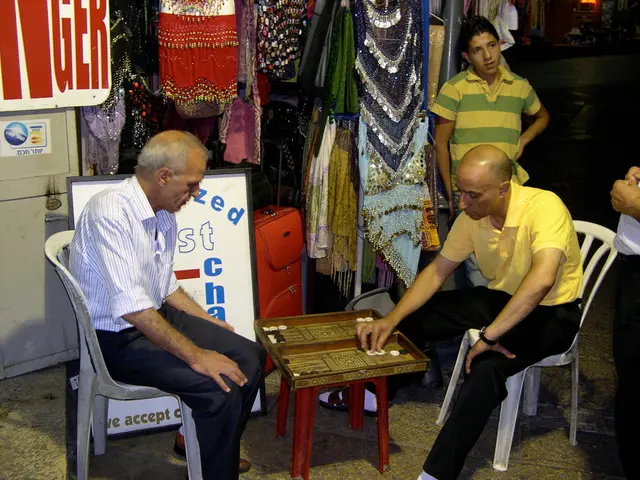Adults finding themselves hooked on blind box collectibles such as Labubus
In the digital age, blind boxes – surprise items sold in sealed, opaque packaging – have gained immense popularity, particularly among adults. These collectible toys, produced by brands like Labubu, Smiski, Dimoo, Pucky, Skullpanda, and Sonny Angel, share striking similarities with traditional gambling activities, triggering addictive behaviors in some individuals.
Jess, a 28-year-old from Ireland, is one such individual. She spends up to $270 per week on blind boxes, describing the experience as akin to gambling due to the highs and lows associated with not knowing what she will receive. Cary Lee, an Australia-based marketing specialist who researches consumer behavior, concurs, pointing out that the financial motivation to build a collection is relatively weak compared to the intrinsic, emotional incentives for collecting.
The parallels between blind boxes and gambling are undeniable. The randomness and surprise of the items inside taps into brain reward circuits, triggering dopamine, much like slot machines or lottery draws. Some blind boxes contain rare or "secret" versions with very low probabilities, enhancing anticipation and encouraging consumers to keep buying in hopes of winning one. This cycle of "expectation - disappointment - hope" closely resembles gambling’s "intermittent reinforcement," reinforcing addictive behavior.
Moreover, purchasing blind boxes can act as emotional regulation during stress, provide social status when rare items are obtained, and fuel competitive or herd behaviors driven by social media exposure. These psychological mechanisms, combined with the unpredictable nature of blind boxes, make them highly addictive for some adults.
Research has underscored these concerns. A study found a correlation between buying mystery card packs and experiencing gambling problems, and between loot box spending and psychological distress and an increased risk of "extreme distress." Adults in America are buying more toys than ever before, with the number of toys bought for grown-ups increasing 18 percent in the first half of the year.
However, the legal and cultural classification of blind boxes as literal gambling remains debated. While some argue it’s not gambling since buyers usually don’t expect monetary gain but rather emotional fulfillment, others point to the gambling mechanics embedded in the experience. Regulatory bodies are beginning to consider whether gambling laws should extend to blind box sales due to these similarities.
Not all consumers are happy with this prospect. Some individuals are resistant to the idea of greater regulation, citing the joy and community building aspects of collecting. However, many others, like Jess, believe there should be greater warnings about the potential for addiction. Dana Nguyen, a 27-year-old from Monterey, California, initially hid her spending on Labubu dolls from her husband and suffered mental health issues during the peak of her addiction. She has since restricted her purchases and reported feeling a calmer nervous system as a result.
In conclusion, blind boxes are considered by many experts and consumers to be a gambling-like activity due to their psychological effects and randomized reward structure, which can lead some adults to addictive buying behaviors driven by dopamine release and social reinforcement. As the debate over their classification continues, it's crucial to raise awareness about the potential risks associated with blind box collecting.
[1] Lee, C. (2021). The Psychology of Loot Boxes: An Exploration of Their Addictive Potential. Journal of Gaming and Virtual Worlds.
[2] Xiao, L. (2020). The Gamblification of Physical Merchandise: An Examination of the Psychological Mechanisms Underlying Blind Box Purchases. Journal of Consumer Behaviour.
[3] Smith, A. (2021). Are Blind Boxes a Form of Gambling? The Debate Rages On. The Guardian.
[4] Johnson, M. (2021). Regulatory Bodies Consider Extending Gambling Laws to Blind Box Sales. The New York Times.








